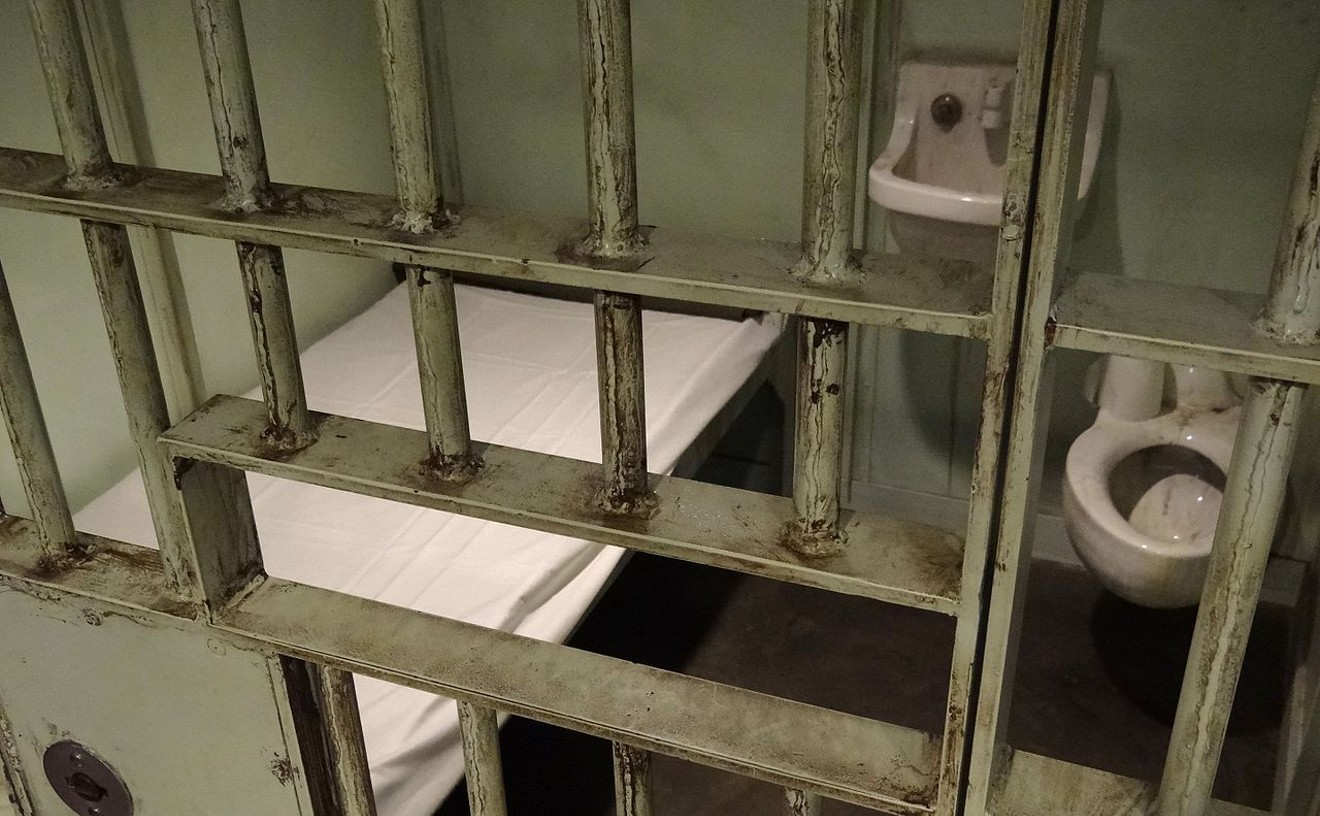On June 25, the U.S. Supreme Court upheld “disparate impact” as a key principle in racial desegregation law, ruling that what matters is the effect, not the intent of government practices. That day the headline over Emily Badger’s item on “Wonk Blog” in The Washington Post exulted: “The Supreme Court’s housing decision is a warning against subtle discrimination everywhere.”
Eh. Maybe not here.
On July 8 President Obama announced a new tougher presidential posture on racial segregation in housing. Three days later an editorial in The New York Times predicted “The end of federally financed ghettos.”
Don’t think so. Not in Dallas.
On August 12, just last week, I sat in the Dallas City Council chambers and watched four newly elected African American council members, the only black people on the council, vote against affordable housing and in favor of a Dallas real estate development company whose initial position was that it would not put any affordable units in its new project of any kind, no matter what.
Here’s the deal, Yankee newspapers. On the ground, out here in the nation, given the lay of the land and recognizing the local realities, it’s really hard to do racial desegregation in a city where the elected black leadership doesn’t want it.
It’s weird having a couple white guys pushing for fair housing as the entire black caucus on the council sits on its hands.
I’m sorry. Make that three white guys. At the end of the debate over inclusion of affordable units in a vast new high-rise development bordering chic new Klyde Warren Park downtown, it was Mayor Mike Rawlings, a card-carrying member of the powerful white-guy class, who called officials of the Trammell Crow Co. and their lawyer back to the podium.
Rawlings figuratively stuck his finger in the faces of Trammell Crow Senior Managing Director Scott Krikorian and zoning lawyer Susan Mead and told them he didn’t like what he had been hearing from them so far.
“This notion of zero, no way, does not feel great,” Rawlings told them.
Only with his prodding, only after council member Philip Kingston reminded the council that the units being sought were for firemen, firefighters, teachers, people in the $50,000 a year range, only then did Krikorian and Mead agree that maybe over 15 years they could create four sort-of-affordable apartments in their project, although they did not agree to any standard of affordability. Federal law and housing policy equate affordability with desegregation because of the income disparity between whites and non-whites. That gets more gray the higher you go up the income scale, but at least as the Supreme Court and the president use the term, affordable housing is always in some degree desegregated housing.
Understand the context: Trammell Crow Co. was coming before the City Council to ask for hundreds of millions of dollars worth of additional building rights, rights not allowed by current zoning, increasing the amount of structure they could build on their dirt by 50 percent. Kingston was really saying the council should give them what they were asking for but also should ask for a little something in return — a handful of apartments that would be affordable to working professionals who are not rich, on the theory that the city has a valid interest in promoting income diversity downtown.
Nothing was compulsory. In fact this kind of process, in which a city trades building rights for affordable housing, is in use in cities all over the country and growing in popularity precisely because it is not compulsory and is considered a win-win: The developer gets to make more money, not less, and the city gets affordable housing at no cost to taxpayers.
Trammell Crow Co. had been saying zero-no-way won’t-do-it since the beginning of summer when the idea of a negotiation was first broached by Kingston’s appointee to the City Plan Commission, Paul Ridley. The company’s argument was that it was not fair for Ridley to propose a negotiation, because the Trammell Crow project was already somehow “underway.”
Under what way? They didn’t have their zoning. They didn’t have city permission to proceed. That’s why the Plan Commission took this up in the first place. It’s why there was a City Council meeting last week. Come to think of it, it’s why we have a Plan Commission and a City Council. Public hearings before public bodies and the deliberations of those bodies are the way we work these things out in a land of laws.
The only “underway” that Trammell Crow Co. was under before last week’s council meeting was the old way, the backroom way, the 19th hole at the Dallas Country Club way. It was perfectly plausible and reasonable for Ridley at the Plan Commission and Kingston at the City Council to ask for concessions, because that’s the way it’s supposed to be done under the law.
We all get why Trammell Crow would cry foul. They just want what they want. All of it. They want to buy land that’s worth X under current zoning, then go to City Hall and get new zoning that makes it worth 3X. And I assume they would also like to pay less taxes, be more handsome or beautiful or both, have a better golf game and be surprisingly talented on the dulcimer. None of that is a surprise.
I wish I could say I was surprised by the posture of the southern Dallas black leadership on the council who supported Trammell Crow. Elected black leadership has never shown any enthusiasm for desegregation in Dallas since the early 1980s, when the Black Coalition to Maximize Education, led by Kathlyn Gilliam, pulled the rug from under lawyers leading the school deseg fight and persuaded a federal judge to end school busing. What they asked for instead — and were granted by a delighted local white leadership — was called the “Minority Neighborhood Option Plan.”
The Minority Neighborhood Option Plan for enriched but all-black schools was an early local step toward what The New York Times in its recent editorial called “federally financed ghettos,” what we might ironically call “the Better Ghetto.” Put the Minority Neighborhood Option Plan together with decades of deliberately segregationist federally financed housing policy, and what do you have? Southern Dallas.
The indexes of misery, the failed schools, incredible unemployment rates and horrific incarceration rates of southern Dallas provide proof upon proof, mountains of proof, that our society was right in the 1960s. With the passage of the Civil Rights and Voting Rights Acts of 1964 and ’65, we decided as a nation that racial segregation was an evil too profound to be assuaged or overcome with subsidies, sops or steam control. The only answer was desegregation.
I called all four of the new black council members. The two who returned my calls were Erik Wilson, who represents District 8 at the far southern rim of the city bordered by Interstate 20, and Carolyn King Arnold, who represents District 4, just to the north of Wilson’s district. I asked in as upfront a way as I could why they had voted against Kingston’s position calling on Trammell Crow to consider including some affordable units in exchange for the vast gift of development rights the company was seeking from the city. I said it looked like a vote against racial desegregation.
Neither one took me up on the segregation issue. Both expressed the same argument made by Trammell Crow Co., almost word for word, that it was unfair to ask the company to negotiate on fair housing after the Crow project was already announced and “in the pipeline.”
Wilson said he didn’t think the Plan Commission should even have broached the subject of negotiations for affordable housing. “I was a bit surprised by the policy-making attempt by the Plan Commission for a project that had already been started, that was in the pipeline,” he said.
The Plan Commission actually shot down Ridley’s proposal for negotiations last June. The idea came up again last week because the City Council had to vote on and give final approval — or not — to the commission’s action.
Even though actions of the commission are always subject to the review of the council, which may change a zoning action any way it sees fit, Arnold told me she didn’t think it was right for the council to consider adding something — the negotiations — that the Plan Commission had already voted against.
“My position from a business standpoint was that whatever was approved by the Plan Commission should have remained intact,” she said.
I asked both about the segregation issue and got very lukewarm responses. Both said that in this instance, if not in all instances, the question of fairness for Trammell Crow Co. trumped affordable housing and segregation.
As I have said already, none of that is surprising. All of it is completely consonant and compatible with the history of black Dallas from time immemorial. This is a city where black leaders have never looked on desegregation as an especially attractive option or goal.
I have written a lot about Curtis Lockey and Craig MacKenzie, two white developers who, in different legal actions in federal court, are accusing Dallas of practicing deliberate racial segregation. One of the things they pointed out in early filings was that Dallas probably is unique among American cities for having an official border between the white half of town, “North Dallas,” and the minority half, “southern Dallas,” as an actual line drawn on city maps and documents.
An op-ed piece in the city’s only daily newspaper last week sounded the same old calls for parity — more bank loans, better infrastructure, etc. — needed by southern Dallas, presumably to be delivered by North Dallas, in order to make this system work. What few people in Dallas seem to comprehend is that this system cannot work and will never work because it is wrong, and the blame for that is not all on white heads.
[
{
"name": "Air - MediumRectangle - Inline Content - Mobile Display Size",
"component": "18855504",
"insertPoint": "2",
"requiredCountToDisplay": "2"
},{
"name": "Editor Picks",
"component": "17105533",
"insertPoint": "4",
"requiredCountToDisplay": "1"
},{
"name": "Inline Links",
"component": "18349797",
"insertPoint": "8th",
"startingPoint": 8,
"requiredCountToDisplay": "7",
"maxInsertions": 25
},{
"name": "Air - MediumRectangle - Combo - Inline Content",
"component": "17105532",
"insertPoint": "8th",
"startingPoint": 8,
"requiredCountToDisplay": "7",
"maxInsertions": 25
},{
"name": "Inline Links",
"component": "18349797",
"insertPoint": "8th",
"startingPoint": 12,
"requiredCountToDisplay": "11",
"maxInsertions": 25
},{
"name": "Air - Leaderboard Tower - Combo - Inline Content",
"component": "17105535",
"insertPoint": "8th",
"startingPoint": 12,
"requiredCountToDisplay": "11",
"maxInsertions": 25
}
]











